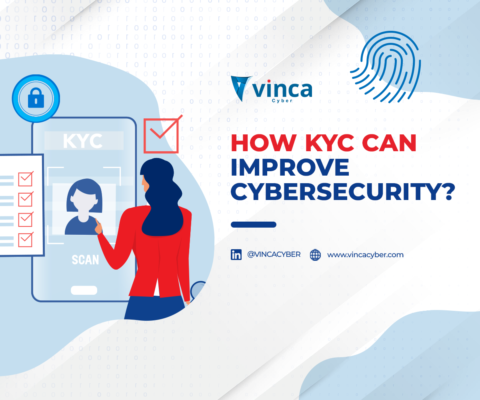KYC (Know Your Customer/Client) is the process of verifying the identity and eligibility of a customer for a healthy business relationship, whereas cybersecurity is the process of protecting customer and business rights from external or internal threat sources.
If we look closely, both KYC and cybersecurity share the common objective of meeting the right security and compliance. The KYC mandates for financial institutions are good examples of how businesses with the right KYC policies and procedures reduce customer fraud, account hijacks, and takeovers, and save on cyber-attack mitigation costs and business reputation in the market.
Let’s find out how KYC is not limited to financial institutions’ security but can be also for trading, blockchain, telecom and health. But before that, let’s talk about the end reasons for any cyber-attacks.
End Reason
- Money
The majority of cyber fraud looks to steal direct money or steal payment data like user credit-debit frequency, average value, and financial performance to conduct sophisticated well-defined targeted attacks.
In such a scenario, KYC helps businesses evaluate their customer base’s present and future security needs in parallel to the amount and types of data stored rather than conventional all-industry-fit similar cyber policies, regulation tools, and techniques.
- Business Information
Information is the vehicle that helps businesses frame and implements strategies, make the right decisions, and so on. When cybercriminals obtain such information, they forecast or sell business strategies to illegal dark webs or competitors, creating an environment conducive to unhealthy competition, economy, and innovation.
Let’s now look at how KYC can improve cybersecurity in the above-mentioned sectors
Trading
A usual day at trading consists of unlimited transactions and records of buying and selling their stocks which requires strong authentication and authorization deploying a KYC process before onboarding or in certain periods helps businesses monitor their financial activity with speed and efficiency increasing a safe and secure customer onboarding, engagement and trust with the platform and business as a whole.
Blockchain
As blockchain follows a decentralized security approach adding KYC can reduce customer friction, enable transparency and trustworthiness of data embedded and can directly increase buy/sell limits, reduce identify risk detection workload resulting in improved efficiency, productivity and safety of data stored in blocks.
This will enhance the use case of blockchain in other sectors which are currently limited to cryptocurrencies.
Telecom
Sim frauds like mismatching photos, names or addresses were common before the telecom sector adopted e-KYC verified by UIDAI or Digi-locker. This was a major contributor to illegal terrorist communications, spam calls and many others.
With KYC telecom industry has reported a 40% decrease in attack breaches related to sim frauds. This has helped the telecom industry to focus more on bringing 5g technology without fear of telecom-related cyber-attacks.
Health
With Covid-19 hospitals were hit with a huge surge in personal medical records and payment information which if exploited can be used to create fake medical claims, insurance and hub for illegal dark web transactions.
With a single step, KYC hospital can accumulate all patient-related data and information to avoid the need for multiple security tools which significantly reduces the cybersecurity spending
Conclusion
With the same objective of meeting the right security and compliances, it’s high time that organizations irrespective of industry type should adopt KYC not only as a customer onboarding step but also as a step to build informed, secured business relationships.
We at Vinca Cyber are a team of security experts with varied expertise to manage the security infrastructure of our diverse client bases that range from large enterprises to SMEs.
To know more or get in touch with us!

